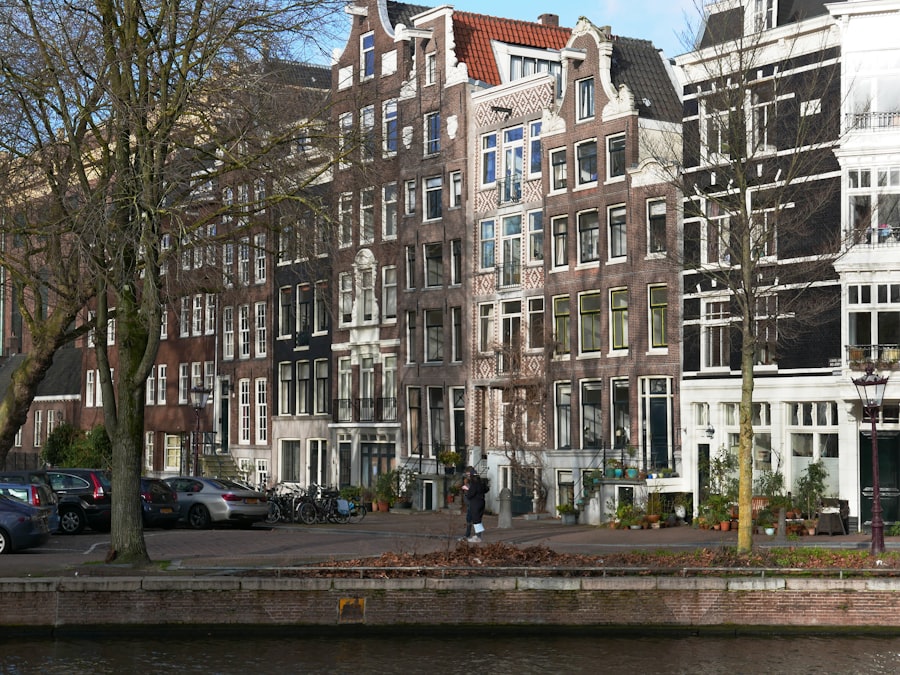Heat stress is a significant concern for chickens, particularly during hot summer months. Chickens are vulnerable to heat stress due to their lack of sweat glands, relying instead on panting to regulate body temperature. When temperatures rise, chickens can quickly overheat, leading to various health issues including dehydration, decreased egg production, and potential death.
Chicken owners must understand these risks and implement preventive measures. Signs of heat stress in chickens include panting, lethargy, reduced feed intake, and lower egg production. Severe cases may result in heat stroke, which can be fatal if not addressed promptly.
It is essential for chicken owners to recognize these signs and take immediate action to cool their birds. To protect chickens from heat stress, owners should provide adequate shade, ventilation, and access to fresh, cool water. Implementing cooling methods such as misting systems or frozen treats can also help maintain comfortable temperatures for the flock.
Regular monitoring of chickens during hot weather is crucial to identify and address any signs of distress quickly, ensuring the overall health and productivity of the flock.
Table of Contents
- 1 Providing adequate shade and ventilation for your chicken coop
- 2 Implementing a misting system or sprinklers to cool the area
- 3 Offering frozen treats and cool water for hydration
- 4 Adjusting feeding schedules to avoid peak heat times
- 5 Monitoring your chickens for signs of heat stress and taking action
- 6 Considering alternative cooling methods such as fans or air conditioning for extreme heat situations
- 7 FAQs
Key Takeaways
- Heat stress can be a serious risk for chickens, leading to decreased egg production, illness, and even death
- Adequate shade and ventilation are essential for keeping chickens cool and comfortable in hot weather
- Implementing a misting system or sprinklers can help lower the temperature in the chicken coop
- Offering frozen treats and cool water can help keep chickens hydrated and cool during hot weather
- Adjusting feeding schedules to avoid peak heat times can help reduce the risk of heat stress in chickens
Providing adequate shade and ventilation for your chicken coop
Shade and Ventilation: The Key to a Cooler Coop
One of the most important steps in preventing heat stress in chickens is to provide adequate shade and ventilation in their coop. This can help to keep the temperature inside the coop at a more comfortable level, reducing the risk of heat stress. Shade can be provided by planting trees or installing shade cloth over the coop, while ventilation can be improved by adding windows, vents, or fans to promote air circulation.
Creating a Healthier Environment
By creating a cooler and more comfortable environment for their chickens, owners can help reduce the risk of heat stress and its associated health problems. In addition to providing shade and ventilation, it’s also important to consider the location of the coop. Placing the coop in a shaded area, away from direct sunlight, can help keep the temperature inside more moderate.
Protecting Chickens from the Dangers of Heat Stress
This can be especially important in areas with hot climates, where the sun’s rays can quickly raise the temperature inside a coop. By taking steps to provide adequate shade and ventilation for their chicken coop, owners can help protect their birds from the dangers of heat stress.
Implementing a misting system or sprinklers to cool the area

Another effective way to help cool the area around a chicken coop is to implement a misting system or sprinklers. These systems can help lower the ambient temperature by creating a fine mist that evaporates and cools the air. This can be especially beneficial during hot weather, when temperatures are high and chickens are at increased risk of heat stress.
By installing a misting system or sprinklers near the coop, owners can help create a cooler and more comfortable environment for their birds, reducing the risk of heat-related health problems. Misting systems and sprinklers can also help to keep the ground around the coop damp, which can provide additional cooling for chickens as they walk around. This can be especially helpful in areas with dry or arid climates, where the ground may become hot and uncomfortable for chickens to stand on.
By implementing a misting system or sprinklers, owners can help create a more pleasant environment for their birds and reduce the risk of heat stress during hot weather.
Offering frozen treats and cool water for hydration
In addition to providing a cooler environment, it’s important to ensure that chickens have access to frozen treats and cool water for hydration during hot weather. Frozen treats such as ice blocks with fruit or vegetables frozen inside can provide chickens with a refreshing snack that helps lower their body temperature. Additionally, ensuring that chickens have access to cool water at all times is crucial for preventing dehydration and reducing the risk of heat stress.
Owners should regularly check water sources to ensure they are clean and cool, and consider adding ice cubes to water containers to help keep it cool throughout the day. Offering frozen treats and cool water for hydration can help keep chickens comfortable and reduce the risk of heat stress during hot weather. By providing these refreshing options, owners can help ensure that their birds stay well-hydrated and maintain a healthy body temperature, even when temperatures are high.
Adjusting feeding schedules to avoid peak heat times
During hot weather, it’s important for chicken owners to adjust feeding schedules to avoid peak heat times. Feeding chickens early in the morning or later in the evening when temperatures are cooler can help reduce the risk of heat stress. This can also encourage chickens to eat when they are more comfortable, as they may be less inclined to eat during the hottest part of the day.
By adjusting feeding schedules to avoid peak heat times, owners can help ensure that their birds stay well-nourished and reduce the risk of heat-related health problems. In addition to adjusting feeding schedules, owners should also consider offering smaller, more frequent meals during hot weather. This can help prevent chickens from overeating at once, which can increase their body temperature as they digest their food.
By offering smaller meals throughout the day, owners can help keep their birds comfortable and reduce the risk of heat stress during hot weather.
Monitoring your chickens for signs of heat stress and taking action

Identifying and Responding to Heat Stress in Chickens
Recognizing the Signs of Heat Stress
Chicken owners must regularly check on their flock throughout the day to look for signs of distress, such as panting, lethargy, or reduced activity. These signs indicate that the chickens are experiencing heat stress and require immediate attention.
Taking Action to Cool Down Chickens
If any chickens show signs of heat stress, owners should take immediate steps to cool them down. This can be achieved by moving them to a shaded area, providing cool water, or using a misting system to lower their body temperature.
Preventing Heat Stress in Chickens
In addition to monitoring for signs of heat stress, owners should also be prepared to take proactive measures to prevent it. This includes providing adequate shade and ventilation, offering frozen treats and cool water for hydration, and adjusting feeding schedules to avoid peak heat times. By being vigilant and proactive in preventing heat stress, owners can help ensure the health and well-being of their flock during hot weather.
Considering alternative cooling methods such as fans or air conditioning for extreme heat situations
In extreme heat situations, it may be necessary to consider alternative cooling methods such as fans or air conditioning to help keep chickens comfortable and reduce the risk of heat stress. Fans can help promote air circulation and lower the ambient temperature inside a coop, while air conditioning can provide a more drastic reduction in temperature during especially hot weather. While these options may require an initial investment, they can be effective at keeping chickens cool and reducing the risk of heat-related health problems during extreme heat events.
In addition to fans and air conditioning, owners may also consider using evaporative cooling systems or portable air conditioners to help lower the temperature inside a coop during extreme heat situations. These options can provide additional cooling for chickens when temperatures are dangerously high, helping to protect them from the risks of heat stress. By considering alternative cooling methods such as fans or air conditioning for extreme heat situations, owners can help ensure that their birds stay comfortable and healthy even in the hottest weather.
If you’re looking for more tips on keeping your chickens comfortable in hot weather, check out this article on large chicken coop ideas from Poultry Wizard. It offers helpful suggestions for creating a spacious and well-ventilated coop that can help your chickens stay cool during the summer months.
FAQs
What are some signs that chickens are overheated?
Some signs that chickens are overheated include panting, holding their wings away from their bodies, reduced egg production, and lethargy.
How can I keep my chickens cool in hot weather?
You can keep your chickens cool in hot weather by providing plenty of shade, ensuring they have access to fresh, cool water at all times, and using fans or misters to lower the temperature in their coop or run.
What are some ways to provide shade for chickens?
You can provide shade for chickens by using natural shade from trees or shrubs, setting up umbrellas or tarps in their run, or creating a covered area in their coop.
How often should I change my chickens’ water in hot weather?
In hot weather, you should change your chickens’ water at least once a day to ensure it stays cool and fresh. If the temperature is extremely high, you may need to change it more frequently.
Can I give my chickens frozen treats to help them cool down?
Yes, you can give your chickens frozen treats such as frozen fruits or vegetables to help them cool down. Just make sure to monitor their intake and not overfeed them with treats.

Meet Walter, the feathered-friend fanatic of Florida! Nestled in the sunshine state, Walter struts through life with his feathered companions, clucking his way to happiness. With a coop that’s fancier than a five-star hotel, he’s the Don Juan of the chicken world. When he’s not teaching his hens to do the cha-cha, you’ll find him in a heated debate with his prized rooster, Sir Clucks-a-Lot. Walter’s poultry passion is no yolk; he’s the sunny-side-up guy you never knew you needed in your flock of friends!
Meet Walter, the feathered-friend fanatic of Florida! Nestled in the sunshine state, Walter struts through life with his feathered companions, clucking his way to happiness. With a coop that’s fancier than a five-star hotel, he’s the Don Juan of the chicken world. When he’s not teaching his hens to do the cha-cha, you’ll find him in a heated debate with his prized rooster, Sir Clucks-a-Lot. Walter’s poultry passion is no yolk; he’s the sunny-side-up guy you never knew you needed in your flock of friends!







